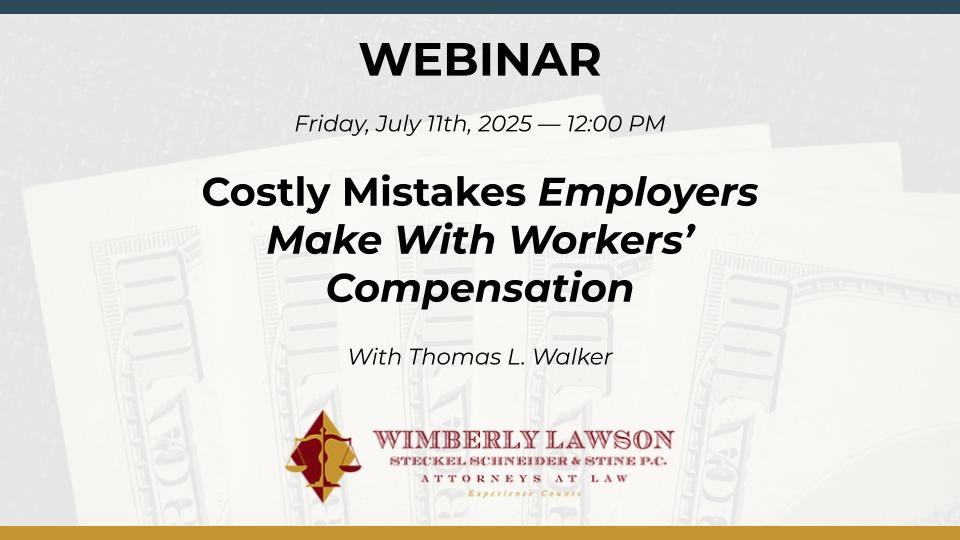OSHA Announces a New Attitude Toward Worker Safety Incentive Programs
Last week, the Department of Labor announced that it is reversing the safety incentive programs guidelines issued during the Obama administration. What does this mean for employers? It means that employers can offer incentives to employees, such as pizza parties, cash bonuses, or other prizes, as incentives for days without reported injuries or accidents in the workplace. According to the DOL, it believes that many employers who implement safety incentive programs and/or conduct post-incident drug testing do so to promote workplace safety and health. In addition, evidence that the employer consistently enforces legitimate work rules (whether or not an injury or illness is reported) would demonstrate that the employer is serious about creating a culture of safety, not just the appearance of reducing rates.
OSHA states that incentive programs can be an important tool to promote workplace safety and health. One type of incentive program rewards workers for reporting near-misses or hazards, and encourages involvement in a safety and health management system. Positive action taken under this type of program is always permissible under § 1904.35(b)(1)(iv). Another type of incentive program is rate-based and focuses on reducing the number of reported injuries and illnesses. This type of program typically rewards employees with a prize or bonus at the end of an injury-free month or evaluates managers based on their work unit's lack of injuries. Rate-based incentive programs are also permissible under § 1904.35(b)(1)(iv) as long as they are not implemented in a manner that discourages reporting. Thus, if an employer takes a negative action against an employee under a rate-based incentive program, such as withholding a prize or bonus because of a reported injury, OSHA would not cite the employer under § 1904.35(b)(1)(iv) as long as the employer has implemented adequate precautions to ensure that employees feel free to report an injury or illness.
A statement that employees are encouraged to report and will not face retaliation for reporting may not, by itself, be adequate to ensure that employees actually feel free to report, particularly when the consequence for reporting will be a lost opportunity to receive a substantial reward. An employer could avoid any inadvertent deterrent effects of a rate-based incentive program by taking positive steps to create a workplace culture that emphasizes safety, not just rates. For example, any inadvertent deterrent effect of a rate-based incentive program on employee reporting would likely be counterbalanced if the employer also implements elements such as:
- an incentive program that rewards employees for identifying unsafe conditions in the workplace;
- a training program for all employees to reinforce reporting rights and responsibilities and emphasizes the employer's non-retaliation policy;
- a mechanism for accurately evaluating employees' willingness to report injuries and illnesses.
Safety incentive programs have been criticized by some as creating a disincentive for employees and supervisors to report workplace accidents, injuries, near misses or other incidents. No one wants to be that guy who reports the incident that keeps his whole department from getting a prize or party. Another concern is that failure to report incidents, even minor incidents and near misses, defeats the whole purpose of a proactive safety program, which is to generate as much information as possible on trends so that steps can be taken to curb future problems. Thus, the Obama administration frowned on such programs and discouraged them.
Now that the restrictions on safety incentive programs are relaxed, companies should use care in implementing such programs so that they do not discourage employees from reporting legitimate safety issues. Before implementing any kind of safety incentive program, a company should have a comprehensive safety program in place that creates a culture of safety. A safety incentive program is just one small piece of that comprehensive program.

Kathleen J. Jennings is a former principal in the Atlanta office of Wimberly, Lawson, Steckel, Schneider, & Stine, P.C. She defends employers in employment matters, such as sexual harassment, discrimination, Wage and Hour, OSHA, restrictive covenants, and other employment litigation and provides training and counseling to employers in employment matters.
Related Content
Get Email Updates
Recent Content

Possible Extension of TPS Status for Haitians until February 3, 2026 and New E-Verify Status Report

Sad News – Mark A. Waschak – September 13, 1963 – June 27, 2025

Heat Safety Rule Appears to Be Moving Forward

Federal Government to Drop Disparate Impact Basis for Discrimination Claims

E-Verify+

